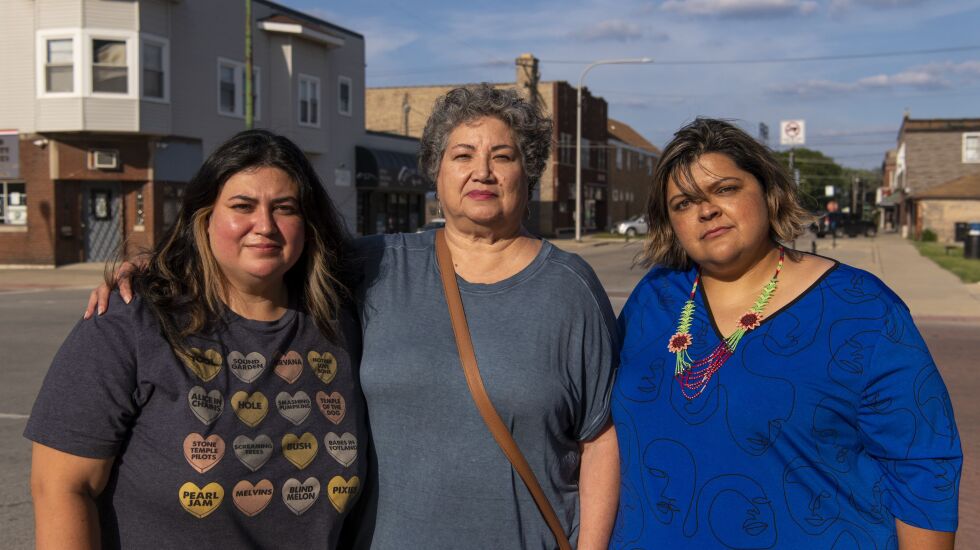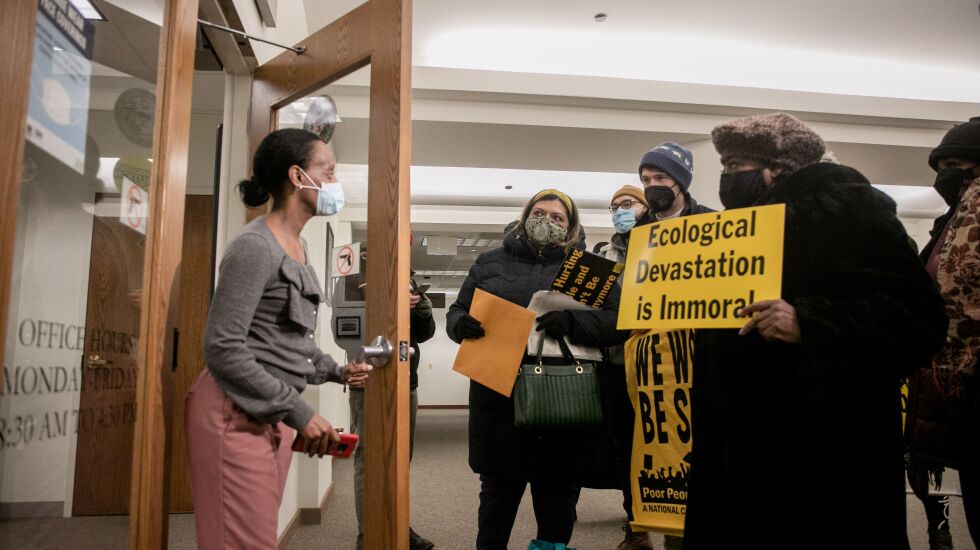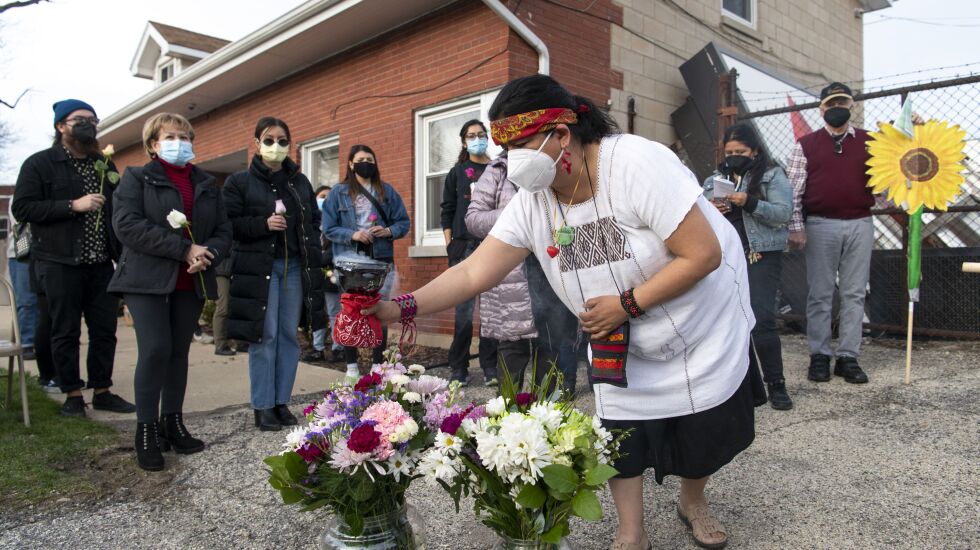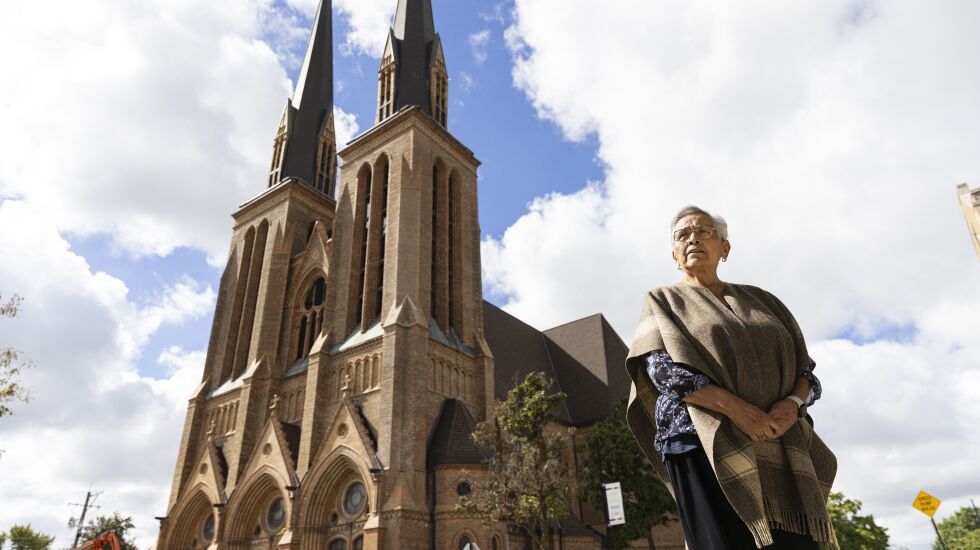Activist Peggy Salazar summed up to me what it felt like to be a Southeast Side resident enduring decades of polluters moving into her neighborhood and threatening her health.
“It didn’t matter what was put here, as long as it meant the city would gain something from it,” Salazar told me at a forum I helped organize in 2021. “It didn’t matter the impacts on the community, on our health or the vitality of the community. That was not important. It was only important that we accommodate what the city needed. And we were, basically then, the sacrifice zone.”
I’ve been talking to Salazar and other community organizers over the last five years about these polluted “sacrifice zones,” all of them on the South and West sides.
Her sentiment is typical of the many Chicagoans I’ve talked to who live in areas known as environmental justice communities burdened with health hazards.
When Salazar made her comments, General Iron, a car-shredding business, had shut down its longtime operation in Lincoln Park, and the new owners were seeking a permit to move to the Southeast Side’s 10th Ward, an area residents say is targeted for the businesses no one wants.

The Southeast Side, hit hard when the steel mills shut down decades ago and where more than half the 10th Ward’s 12,600 acres are zoned for manufacturing, can be reimagined as an area with sustainable businesses that aren’t sources of air pollution, Salazar said.
Another polluter, this one marketed as a “sustainable development,” was the last straw for Salazar.
In February, Chicago Mayor Lori Lightfoot surprised many by denying the General Iron permit. Yet, citing the city’s previous role in helping the planned move, a federal civil rights investigation found that Chicago discriminates against its residents through zoning and land-use practices that smack of environmental racism.

To tell these stories, I dig for documents through open records requests, court filings or other methods. I interview experts and do a lot of research.
But what I’ve learned from folks like Salazar, now officially retired as the head of the Southeast Environmental Task Force, has provided invaluable insights into communities.
I’ve spent time with organizers and families who say they just want clean air and a livable environment for their kids.
And it’s not just on the Southeast Side.
On the Saturday of Easter weekend 2020, an almost 400-foot chimney at a former coal power plant in Little Village came crashing down after being imploded, billowing into a massive dust cloud that covered the community.
Outraged residents demanded answers from City Hall, which blamed the warehouse developer in charge of the demolition. An investigation from the city’s inspector general was completed last year and recommended that city officials be punished.
Lightfoot refused to release the report.
So, I tried to get it through the state’s Freedom of Information Act, but the city denied my request. Then earlier this year, using a short summary of the report that was public, I tried the open records route again, this time requesting emails. The city dragged my request out for months but, by August, I was able to piece together a story.
What I found: City officials had plenty of warnings that the botched demolition would cause harm.

When an asphalt plant opened across from McKinley Park in 2018, the neighbors were livid. They asked: How was this allowed to happen and what could they do?
When MAT Asphalt put in low bids for most of $500 million in city work early this year, residents were again upset, fearing that the additional demand would lead to hundreds of tons of additional asphalt production.
After I wrote a story, city officials rejected all bids and determined they would include environmental safeguards in a new round of bidding.
At the beginning of the year, a fight was beginning to brew over another scrap metal shredder’s permit — this time Sims Metal Management in Pilsen.
The impact of the operation on nearby homes and schools is a big community concern, and it appears that the fight over a city permit for Sims will not be over before city elections in February, despite residents’ persistence.

Mary Gonzales, one of the community members leading the charge against Sims, tells me she’s inspired by the work of her mother, longtime Pilsen activist Guadalupe Reyes, who died in 2000.
“We’re going to give it everything we’ve got,” Gonzales told me.
And I’ll be there to tell her story.
Brett Chase’s reporting on the environment and public health is made possible by a grant from The Chicago Community Trust.







